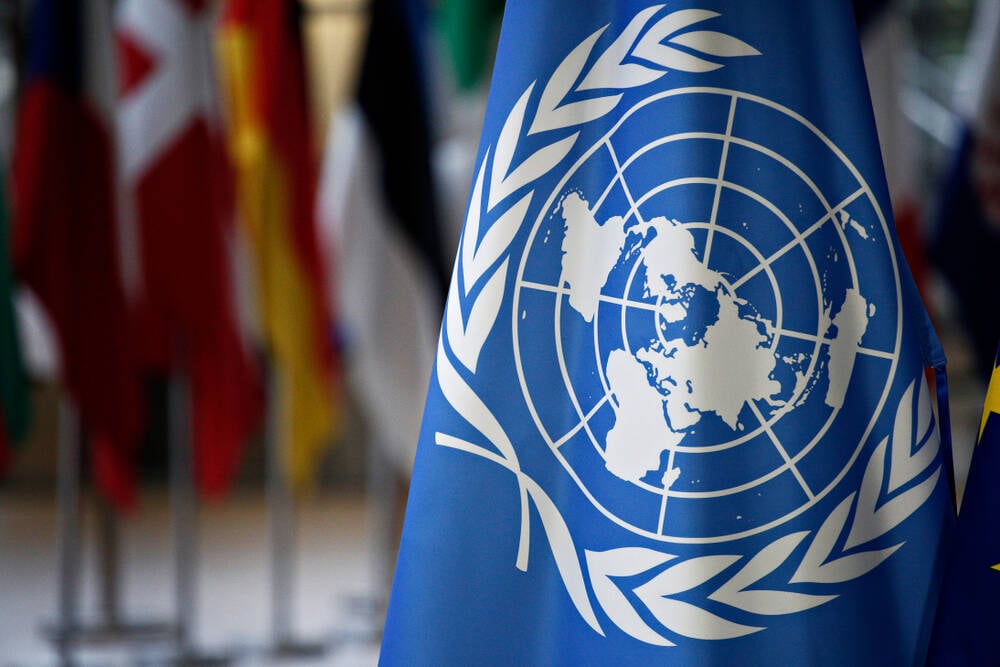ICANN Warns UN May Sideline Tech Community From Future Internet Governance

The United Nations' proposed Global Digital Compact will exclude technical experts as a distinct voice in internet governance, ignoring their enormous contributions to growing and sustaining the internet, according to ICANN and two of the world's regional internet registries.
The Global Digital Compact is an effort to "outline shared principles for an open, free and secure digital future for all." The UN hopes the compact will address issues such as digital inclusion, internet fragmentation, giving individuals control over how their data is used, and making the internet trustworthy "by introducing accountability criteria for discrimination and misleading content."
But ICANN, the Asia Pacific Network Information Centre (APNIC), and the American Registry for Internet Numbers (ARIN) worry that recent articulations of the Compact suggest it should use a tripartite model for digital cooperation with three stakeholder groups: the private sector, governments, and civil society.
That's dangerous, ICANN and co argue, because technical stakeholders would lose their distinct voice.
They've therefore co-signed and published a document criticizing the Compact as it stands today.
"The technical community is not part of civil society and it has never been," the document states, citing outcomes of the World Summit of the Information Society (WSIS) – a UN event staged in 2003 and 2005 that defined a multi-stakeholder internet governance framework. 2015's WSIS+10 event affirmed that strategy.
"This model excludes the technical community as a distinct component, and overlooks the unique and essential roles played by that community's members separately and collectively," DNS overlord ICANN and the registries added.
- Ukraine invasion: We should consider internet sanctions, says ICANN ex-CEO
- ICANN responds to Ukraine demand to delete all Russian domains
- It only took four years and thousands of complaints but ICANN finally kills off rogue Indian domain registrar
- ICANN begs Europe: Please fill in the blanks on this half-assed GDPR-compliant Whois we came up with
In the write-up Paul Wilson, the director general of APNIC, along with ARIN CEO John Curran, and ICANN interim president and CEO Sally Costerton, argue the UN model therefore goes against established practices.
The document argues that the tripartite model represents an unnecessary change to internet governance.
Citing growth in internet users from one billion in 2005 to over five billion today, the authors argue that today's governance models – that include the technical community as a distinct stakeholder – have worked.
And they argue that such arrangements will continue to deliver a robust internet for all – just what the UN wants the Compact to deliver.
The post concludes: "The technical community will certainly continue to play its critical roles in the future of the internet, and it behooves the UN to recognize this reality in its formulation of any future processes related to internet governance." ®
From Chip War To Cloud War: The Next Frontier In Global Tech Competition
The global chip war, characterized by intense competition among nations and corporations for supremacy in semiconductor ... Read more
The High Stakes Of Tech Regulation: Security Risks And Market Dynamics
The influence of tech giants in the global economy continues to grow, raising crucial questions about how to balance sec... Read more
The Tyranny Of Instagram Interiors: Why It's Time To Break Free From Algorithm-Driven Aesthetics
Instagram has become a dominant force in shaping interior design trends, offering a seemingly endless stream of inspirat... Read more
The Data Crunch In AI: Strategies For Sustainability
Exploring solutions to the imminent exhaustion of internet data for AI training.As the artificial intelligence (AI) indu... Read more
Google Abandons Four-Year Effort To Remove Cookies From Chrome Browser
After four years of dedicated effort, Google has decided to abandon its plan to remove third-party cookies from its Chro... Read more
LinkedIn Embraces AI And Gamification To Drive User Engagement And Revenue
In an effort to tackle slowing revenue growth and enhance user engagement, LinkedIn is turning to artificial intelligenc... Read more

